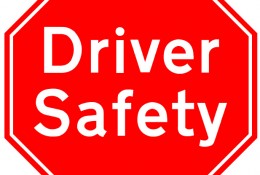
Veterans’ benefits in the United States
President Abraham Lincoln, in his second inaugural address, in 1865 towards the end of the US Civil War, famously called for good treatment of veterans: “to care for him who shall have borne the battle, and for his widow, and his orphan”. The American Civil War produced veterans’ organizations, such as the Grand Army of the Republicand United Confederate Veterans. The treatment of veterans changed after the First World War. In the years following, discontented veterans became a source of instability. They could quickly organize, had links to the army, and often had arms themselves. Veterans played a central role in the post-World War I instability ofGermany, while in the United States, the Bonus Army of unemployed veterans was one of the most important protest movements of the Great Depression, marching on Washington, DC, to get a claimed bonus that Congress had promised them.
Each state of the United States sets specific criteria for state-specific veterans’ benefits. For federal medical benefits from the Department of Veterans Affairs (VA) hospitals, prior to 7 September 1980 the veteran must have served at least 180 days of active duty, after the above-mentioned date, the veteran must have served at least 24 months. However, if the veteran was medically discharged and receives a VA service-connected disability stipend, the time limits are not applicable.
American veteran experience after World War II

World War II Veteran on Memorial Day 2013 at the San Francisco National Cemetery
After the Second World War, in part due to the experience of the First World War, most of the participating states set up elaborate veterans’ administrations. Within the United States, it was veterans groups, like the American Legion and Veterans of Foreign Wars organization, that pushed for and got the G.I. Bill enacted. These gave veterans access to free or subsidized education and health care. The newly educated GIs created a significant economic impact, and with the aid of VA loans were able to buy housing and establish themselves as part of a growing American middle class. The explosion of the suburbs created sufficient housing for veterans and their families.
American veteran experience after OEF and OIF
Many veterans of Operation Enduring Freedom and Operation Iraqi Freedom have had to face challenges unique to warfare in the 21st century. One significant difference between OEF and OIF and previous wars is a greater dependence on reservists and repeat deployments. Up to 80% of troops deployed at the beginning of OEF were part of the part of the Army National Guard and Reserve[5] and about 40% of currently serving military members have been deployed more than once.[6] This has meant that many deployed troops, not being as “ steeped in military culture ”[7] have had more difficult transitions into military life, and for many the increased redeployment rate has meant more transitions, more uncertainty, longer terms, and shorter dwell times, all of which contribute to greater stress.
Due to medical advances, warfare in the 21st century tends to yield more survivors with severe injuries which soldiers in previous wars would have died from.[8] This means that, though fewer service members die, more return from war with injuries more serious, and in turn more emotionally devastating, than ever before. Among these injuries is the increasingly common traumatic brain injury, or TBI, the effects of which can range from a mild concussion to amnesia and serious neurological damage.[9]
Female veterans in the U.S.
Women have served in the United States military for over two hundred years. Some female veterans perceive themselves as discriminated against by their male counterparts and, as such, women who have served in the armed forces have sometimes been known as “the invisible veterans”.[10] Women were not fully recognized as veterans until after WWII, and prior to this they were not eligible for VA benefits. The current percentage of U.S. Veterans who are women is more than 8 percent. Women make up nearly 11.6 percent of OEF/OIF/OND Veterans.[11] A tri-state (Washington, Idaho, Oregon) women veterans conference in Pendleton, Oregon, in April 2008, attracted 362 women veterans, according to the East Oregonian newspaper.
African American veterans in the U.S.
African Americans have participated in every war fought by or within the United States. Black veterans from World War I experienced racial persecution on returning to the U.S. from overseas, particularly in Southern cities.[12]Black veterans from World War II continued to be denied equality at home despite President Harry S. Truman‘s desegregation of the military after World War II. Black veterans went on to play a central role in the Civil Rightsmovement. The National Association for Black Veterans is an organization that provides advocacy and support for African American and other minority veterans.
Health effects of military service and treatment for veterans
The effect of active military service can be profound and lasting, and some veterans have found it difficult to adjust to normal life again. An article in the London Metro on 28 January 2010 was titled “Veterans prone to suicide” and cited a report by the Mental Health Foundation [1] which said that not enough was being done to care for the Afghanistan war veterans, and many “plunged into alcohol problems, crime and suicide” upon their return. Indeed, in the U.S., the suicide rate among veterns is 300% the national average.[13] Support services were found to be patchy from area to area. Figures from 2009 showed that twice as many veterans were in prison than there were British troops currently in Afghanistan. Homelessness, street-sleeping and relationship breakdown are also commonly reported. Research done by he UK homelessness charity CRISIS (1994) and the Ex-Services Action Group (1997) both found that a quarter of homeless people had previously served in the armed forces.[14] The Times newspaper reported on 25 September 2009 that in England and Wales the number of “military veterans in jail has more than doubled in six years”.[15] Another Times article of the same date quoted the veterans mental health charity Combat Stress[16] reporting a 53% increase in referrals from doctors
Post Traumatic Stress Disorder treatment among veterans
New treatment programs are emerging to assist veterans suffering from post-combat mental health problems such as depression and post traumatic stress disorder (PTSD). Cognitive Behavioral Therapy (CBT), is becoming an important method for the treatment of mental health issues among veterans, and is currently considered the standard of care for depression and PTSD by the United States Department of Defense. CBT is a psychotherapeutic approach that aims to change the patterns of thinking or behavior that responsible for patient’s negative emotions and in doing so change the way they feel. It has been proven to be an effective treatment for PTSD among war veterans. Recently, online programs that pair CBT with therapist interaction have also proven effective in treating mental health problems among veterans. Eye Movement Desensitization and Reprocessing (EMDR) is also an effective and non invasive, drug free treatment for PTSD, although it has not been tested against specific military traumatic exposure for efficacy.Neuro-Linguistic Programming (NLP) also has applications in this field.
Help for veterans
Necessity has resulted in a number of sources of help being made available for veterans. Many of these are independent, charitable organisations, and in some countries the aftercare and rehabilitation services provided by Governments have been inadequate.[17] This may be because they do not wish to give attention to the negative effects of military service and the difficulties of readjustment to civilian life for it may have an adverse impact upon recruitment for their armed forces. Nevertheless, help is available and veterans should feel able to make contact and ask for assistance or advice without feeling that this is a weakness. Military service can be a profoundly unnatural experience and it is likely that some help may be needed in debriefing and rehabilitation into the community, whether it be medical, psychological, practical or financial.




